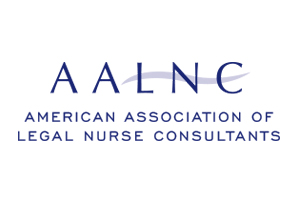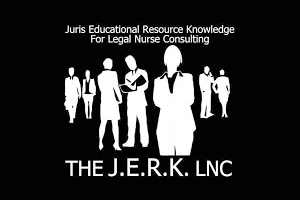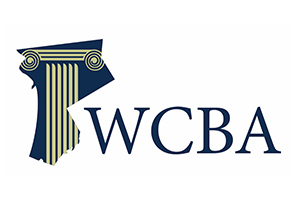Frequently Asked Questions
Legal Nurse Consulting is a nursing specialty which has developed over the past 4 decades.
Legal Nurse Consultants(LNC) are primarily, “Clinical Educators”, for the legal field LNC can work behind the scenes either as a non-testifying expert or as a Testifying Expert .Legal Nurse Consultants can provide the “Insider’s View” of what happened or did not happen in the health care event, and provide support and cost effective litigation assistance for the legal team’s success.
While an attorney is a legal expert, the LNC the healthcare system expert. Nowhere else will an attorney find this level of cost-effective expertise for reviewing medical records and understand the terminology and subtleties of healthcare. The Legal Nurse Consultant functions as attorney’s personal clinical instructor and understands the nuances of the health care environment, reads between the lines of the medical record that a non-medical professional might not see or understand . Most Legal Nurse Consultants (LNC) are seasoned professional registered nurses in different medical /surgical specialties of clinical practice. Many LNC’s have had supervisory /educator experience, are familiar with standards, and have participated in writing policy and procedures for institutions .LNC’s can work behind the scenes as either Non - testifying experts or as Testifying Experts
LNC are resourceful and possesses a national network of medical professional resources and contacts. They can help you find Experts that will support your case. The LNC is well versed in using medical libraries, medical equipment and other resources.
The LNC’s ability to “talk the talk” - and speak the language of physicians, patients and healthcare providers, insider’s knowledge , and invaluable nursing skills saves precious attorney time ,results in cost effective organization of the medical record facts and preparation of a case. Many cases can be rejected or settled quickly by using the resources and knowledge of a legal nurse consultant.
LNC’s provide objective services and can assist attorneys representing either aspect of a case. A LNC may be hired by attorneys, insurance companies, risk management departments, government and other groups involved with health and medical records.
LNC services are less costly than doctors they can provide great value to the legal team. Nurses are natural teachers as educating the public is part of their everyday work experience. Just as a bedside nurse teaches her patient about what to expect in their healthcare experience the LNC will teach an attorney what happened in the health care experience and consider disease, co- morbidities, allied health service notes, medication effects and errors . When asked to review a case for merit, an LNC can render informed opinions( written or verbal) related to the process and delivery of nursing and other health care services and outcomes. An LNC can best decipher medical language and acronyms as they, “talk the talk”. They can help educate the attorney on medical issues, write deposition questions, facilitating the attorney’s ability to have more informed , focused effective, conversations with his, “doctor expert” about the condition at hand. They can also provide cost effective litigation help when organizing the voluminous electronic medical record so that, “the expert” has minimal time going through the record and wasting expensive expert time.
Many attorneys think that an LNC and medical paralegals are similar, and are confused about how the two differed in relation to the services provided to attorneys. A paralegal is highly trained in the litigation process. While many medical paralegal are able review records and write medical summaries, the LNC is a professional Nurse who is better prepared to read and digest the Electronic Medical Record(EMR) in an efficient, cost saving, manner as the LNC has experience writing the EMR. An LNC is a medical professional, Clinical instructor for the attorney and can explain the “WHY” of health care practice. They find the, “hidden secrets of the chart” and find things that civilian eyes cannot see.
Paralegals often attend DME with plaintiff, but reports are considered biased by the judge as the paralegal is an attorney employee, whereas the legal nurse is an independent contractor and objective observer. Also, plaintiffs are not likely to undress in front of office staff whereas the DME nurse advocate does not leave the patients side during exam and can assist and observe patient pain/movement ability. The DME doctor is also more likely to give a more thorough exam knowing that a fellow professional/nurse is watching and will be recording his actions.
My passion for the legal side of nursing developed as a child after discovering the children book series, Cherry Ames, Nurse Detective by Helen Wells. Ten years later I attended nursing school in NYC where I received my BSN and RN. My clinical career took place in multispecialty ICU and Operating rooms.The dream of taking caring for the sick while solving medical/legal mysteries followed me through my professional career; while at NYU Wagner Graduate School of Public Administration for Health Policy and Management, my favorite class was Medical Malpractice, where I further developed my passion for the legal side of nursing.
Basic Nursing skills such as Clinical experience , strong critical thinking and organizational skills along with great communication ability , are the most important part of any Legal Nurse Consultant training and practice.
Legal Nurse Consultants (LNC) who want to better understand the legal profession and show their commitment to the profession and best practices will attend continuing education to develop their legal skills and language. They take courses at local Universities, V. Milazzo Institute, and AALNC/Associations. I did all three and was proud to display the LNC, CLNC, LNCC credential. These LNC training courses and certifications help better prepare the clinical nurse to work in the legal field and assist attorneys win their cases.
My personal story began when Hurricane Sandy flooded NYU Medical Center in 2012. I was working as the Clinical Instructor for New York University Surgical Technology Program in the main Operating Room and became unemployed without pay, for 3 months when the hospital flooded and shut down. I started an 8-month Legal Nurse Consultant / Nurse paralegal course at Hunter College(City University of New York) and received an “LNC ” credential which indicated I completed legal courses offered by the college. Soon after , I worked at a boutique toxic tort firm on Wall Street and gained legal experience in writing medical summaries. Two years later, I then attended 1-week course at Vicky Milazzo Institute which’d focused on business basics for the independent LNC practice, I took a certification exam ,received a “CLNC” certification became a member of National Alliance of Certified Legal Nurse Consultants (NACLNC) which was good for 2 years. During the next two years I opened my independent, non- testifying LNC practice, expanded my LNC experience ,did Review for Merits/chronology reports, Expert search and DME Nurse Advocate cases. As my experience diversified, I challenge myself and take the AALNC certification exam which is a highly selective exam for actively working LNC and became a “Legal Nurse Consultant Certified (LNCC).”
The American Association of Legal Nurse Consultants (AALNC) formed in 1989 is a national network and serves a s the “gold standard” forum of education and resources for its LNC community . The AALNC certification process is more selective and comprehensive with 11 legal topics, and requires minimum of 5 years clinical nursing experience, 2000 hours work as Legal Nurse Consultant before allowing nurse to sit for certification exam. This is a 5-year certification, the and requires continuing education to maintain certification .
In 2020 , there are about 490 LNCC nationwide, and have demonstrated knowledge, experience, and commitment to this legal nursing specialty. For more information check out www. AALNC.org.
Simple steps to successful, timely, effective, medical record review
The LNCN Process:



